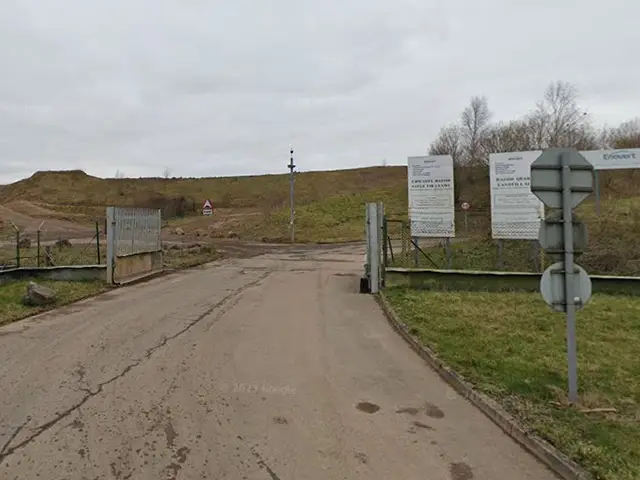Support quality, independent, local journalism…that matters
From just £1 a month you can help fund our work – and use our website without adverts. Become a member today

Campaigners have accused public bodies of failing to safeguard the public from “noxious” odours from a landfill site, warning of a “glaring regulatory gap”.
Steve Gittins organised a petition signed by more than 1,100 people on the “overpowering” smell from the Enovert landfill site at the old Hafod quarry in Johnstown, Wrexham.
In written evidence to a resulting Senedd inquiry, Mr Gittins accused Wrexham Council and Natural Resources Wales (NRW) of failing to close a regulatory void.
“This is not just regulatory inertia but governance failure,” he said on behalf of campaigners who have been fighting for change for the best part of two decades.
He told the Senedd’s petitions committee that the council and NRW rely on “vague technicalities” to preserve a “harmful” status quo.
‘Complaint fatigue’
Mr Gittins wrote: “Does this not create the impression that the operator is being protected rather than the public, by running with the foxes and hunting with the hounds?”
He warned of “complaint fatigue” and criticised community engagement, with members of a liaison committee describing it as a “waste of time”.
“After 19 years of protests, they still prevaricate and kick the can down the road,” Mr Gittins said. “This is not engagement – it is institutional evasion.”
He accused Wrexham Council of compounding regulatory failure by applying industrial limits when assessing the health impact rather than World Health Organisation guidelines.
Mr Gittins argued excessive emissions from the Hafod site pose a risk to residents’ rights to life and family life under the European Convention on Human Rights.
‘For the avoidance of doubt’
Appearing before the petitions committee on September 22, James McClymount – waste regulation team leader – said NRW regulates Hafod landfill under environmental permits.
Asked about conditions on air quality and public health, Mr McClymount pointed to an odour management plan which outlines how operator Enovert will keep smells to a minimum.
Toby Zorn, environmental health team lead at the council, explained the local authority also has a regulatory role under the Environmental Protection Act 1990.
And Charlie Pope, from the North Wales Minerals and Waste Planning Service, said her role is to check conditions attached to planning permission on behalf of the council.
But she told Senedd Members: “For the avoidance of doubt, there aren’t any conditions on that planning permission that specifically relates to odour.”
‘Foul smells’
Pressed on whether the permit could be tightened up, Mr McClymount explained that conditions are standard across the UK and suggested they would not be changed.
He said NRW’s officers assess compliance by verifying the presence, type and intensity of odour near the site, and whether the operator is taking appropriate measures.
Asked if foul smells are inevitable, Mr McClymount replied: “Most landfills will have an odour, it’s trying to minimise the emissions that cause that odour that is the key to management.”
He said NRW issued an enforcement notice in December 2023 after a spike in complaints and the operator complied with a long list of required actions. NRW data showed odour incident reports peaked at 240 in January 2025, up from four reports in September 2023.
“If they hadn’t undertaken those tasks, it would have led to a prosecution,” he said, pointing to a fall in complaints from the peak with NRW undertaking 16 inspections.
‘We’re satisfied’
Mr McClymount told Senedd Members: “We actually went earlier this week to check the site and we found that we were satisfied with the mitigation that’s in place at the moment,” before adding: “We recognise that there’s still odours being experienced in the community.”
In its written evidence, the council said a five-week assessment was carried out and it concluded that “no statutory odour nuisance currently exists”.
Asked about the relationship with the community, Mark Silvester, Enovert’s chief executive, accepted the company must do more to build trust given recent complaints and headlines.
Figures provided by Enovert show 54% of the waste deposited at Hafod came from England in 2024, with Merseyside being the largest single contributor at 28%, while Wrexham itself accounted for 25% of the total waste.
In its written evidence, the waste management company stressed: “Enovert takes all complaints seriously, investigating each one and reacting accordingly to control our operations and infrastructure to minimise the risk of odours arising.
“It is always our intention to be a good, responsible neighbour.”
Support quality, independent, local journalism…that matters
From just £1 a month you can help fund our work – and use our website without adverts.
Become a member today
